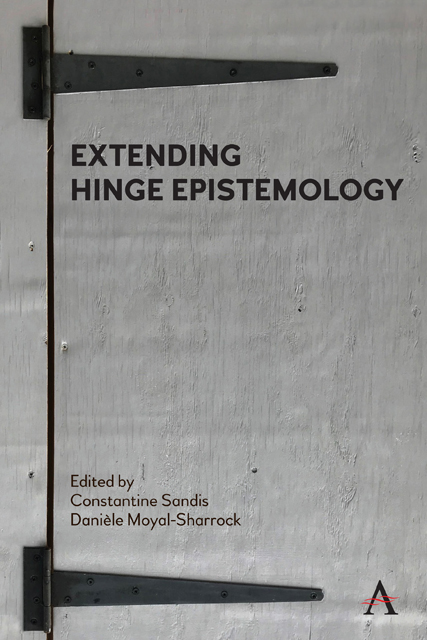Chapter Ten - In Defence of a Reidian Moderate View of Our Hinge Commitments
Published online by Cambridge University Press: 09 December 2022
Summary
Introduction
What is the epistemic status of our hinge commitments? Are they endowed with epistemic properties such as truth, justification or rationality? Within the hinge epistemology field, different views try to account for the specific status of our hinges – that is, of these general and implicit commitments, such as ‘there is an external world’, ‘our intellectual powers are reliable’ or ‘my cognitive situation is unproblematic’. Such views target a category of beliefs that seem to disobey the epistemic rules governing the mass of our particular empirical judgements (such as, ‘the book I am reading is blue-covered’ or ‘Vitré is a city in Brittany of 18 000 inhabitants’). Their challenge is to account for a seeming paradox, while these hinge commitments are not taken for granted for any specific reason, it seems that it is plainly legitimate for us to assume them, and that our not accepting these things on the basis of specific reason does not outright entail scepticism.
Some hinge epistemology theories take very tenuous conceptual roads, in the sense that what distinguishes them from theories that do not place much emphasis on the specific epistemic status of our hinges may seem slight. Thus, while Annalisa Coliva (2016, 13–14) contends that our hinge commitments play a rule-like role, she continues to take them to be ‘propositions’ in the broader sense of the term, to attribute to them the property of truth within the limits ‘of a very minimal understanding of truth’, and to regard them as assessable in terms of epistemic (ir)rationality.
Here, I want to consider such a strategy. This view begins with the distinction between particular perceptual judgements that are endowed with epistemic properties and hinges that are not. But, in the course of its development, this view comes close to attributing to hinges the very properties it was supposed to exclude at the beginning. The question then becomes whether it is still worth maintaining the initial distinction. Indeed, to insist that even though our hinges are unjustifiable, they are still epistemically rational, seems to blur the basic distinction on which any self-respecting hinge epistemology must be grounded. Though, it is such a bold move that Coliva makes in her book Extended Rationality.
Information
- Type
- Chapter
- Information
- Extending Hinge Epistemology , pp. 175 - 192Publisher: Anthem PressPrint publication year: 2022
